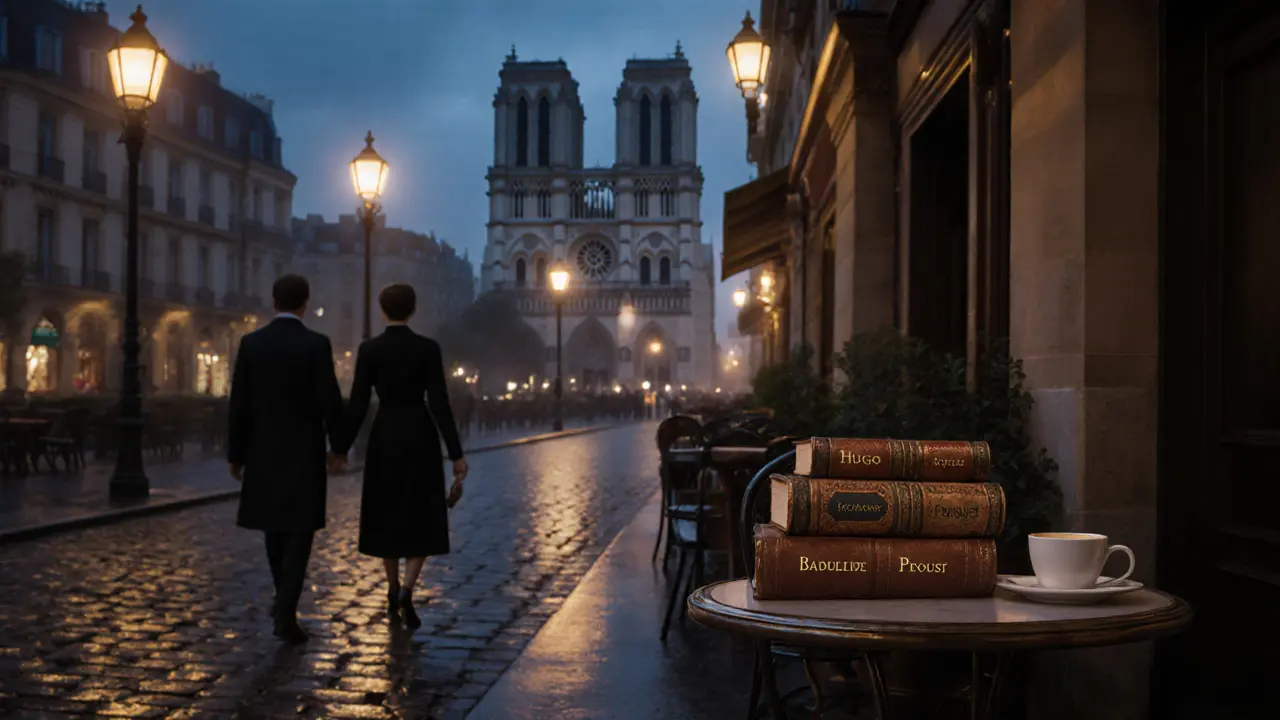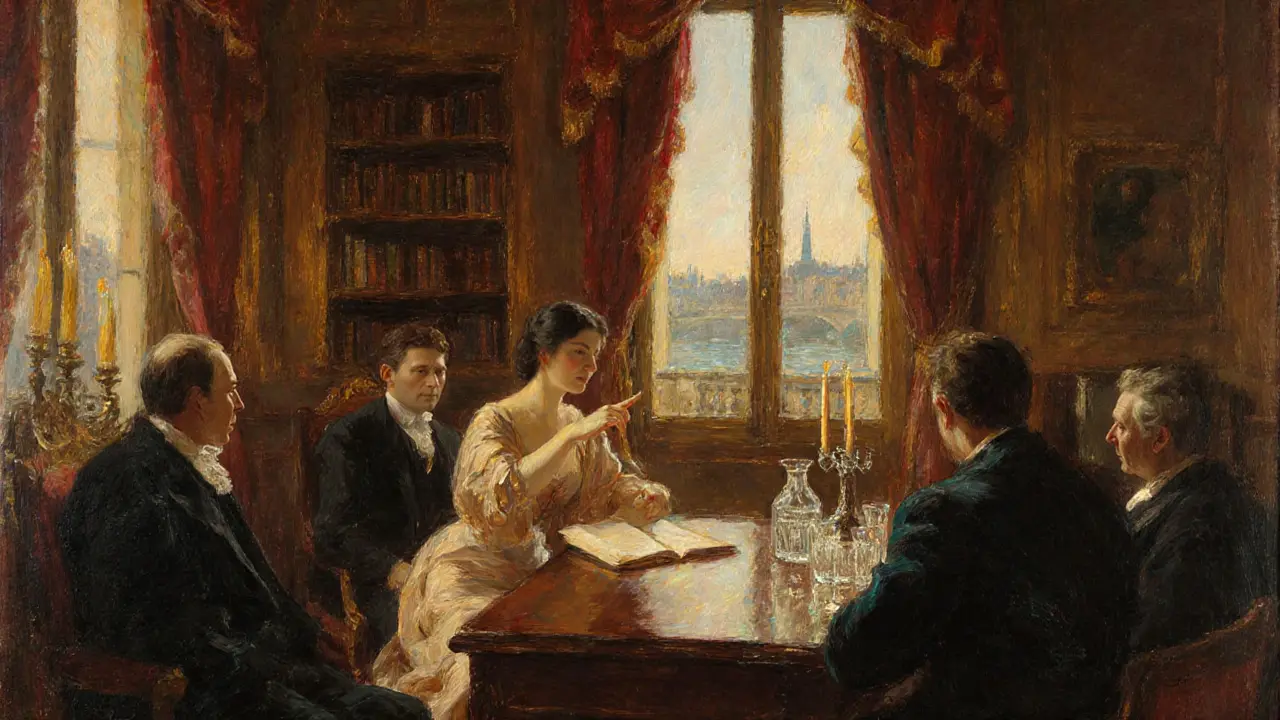How French Literature Shaped the Paris Escort Scene

Key Takeaways
- French novels and poetry have created lasting images of Parisian romance that escort services still use.
- Literary salons of the 19thcentury acted as informal networking hubs for sex workers.
- Authors such as MarcelProust and Charles Baudelaire turned prostitution into a literary motif, affecting how clients perceive escorts today.
- Changes in French law and public morality often reflected the themes explored in contemporary literature.
- Modern escort agencies can borrow literary references responsibly to add depth to branding without exploiting the original works.
When you walk down a Parisian boulevard, the city’s romance feels almost scripted. That feeling isn’t random - it’s the product of centuries of stories, poems, and essays that painted the capital as a playground for love and desire. Those narratives have seeped into the Paris escort industry, shaping how agencies market themselves, how escorts craft their personas, and even how clients imagine a night out. This article unpacks that cultural tunnel, showing you exactly where the literary influence starts, how it morphs over time, and what it means for today’s adult‑entertainment market.
French literature’s early flirtation with Parisian sexuality
French literature has long been fascinated by the city’s nocturnal side. In the early 1800s, writers flocked to the cafés of the Left Bank to observe the mingling of artists, aristocrats, and courtesans. The French literature of that era didn’t shy away from describing brothels, often treating them as micro‑cosms of social hierarchy.
Take the novel Les Misérables by Victor Hugo. While the book focuses on poverty and redemption, its vivid scenes of the “Maison de la Mort” (a notorious house of ill repute) give readers a glimpse into how sex work was woven into everyday life. Hugo’s description of the house’s clientele-ranging from aristocrats to soldiers-set a template for the idea that prostitution could be both respectable and scandalous.
Another milestone is Charles Baudelaire’s Les Fleurs du Mal. In poems like “Le Balcon,” Baudelaire celebrates the erotic thrill of secret encounters on Paris balconies, a motif that later escort ads would echo when promising “intimate moments under the city’s iconic rooftops.”
From salon whispers to formal networking
Literary salons weren’t just about poetry recitals; they were also marketplaces of ideas-and occasionally of bodies. In the mid‑19thcentury, salons hosted by figures like George Sand and Gustave Flaubert attracted wealthy patrons who enjoyed both intellectual conversation and discreet companionship.
These gatherings created a social infrastructure that allowed sex workers to advertise subtly through gossip. A courtesan who was praised for “her eloquence akin to the verses of Lamartine” could attract a client seeking both conversation and physical intimacy. Over time, this informal system evolved into the more structured networking we see in modern escort agencies.
Authors whose characters still sell tickets
Several literary works introduced iconic escort archetypes that persist in branding today:
- Marcel Proust - In In Search of Lost Time, the character of the “MademoiselleWang” represents a sophisticated escort who blends cultural knowledge with sensuality. Modern agencies cite Proustian “memory‑triggered” experiences to market “luxury evenings that linger in the mind.”
- Stendhal - His novel The Red and the Black follows Julien Sorel, a young officer who manipulates both love affairs and political ambition. The book’s focus on ambition through intimacy fuels the modern “career‑driven” escort narrative, where clients view companions as mentors in the social ladder.
- Émile Zola - Zola’s naturalist style in Nana portrays a prostitute who becomes the center of Parisian high society. “Nana” is often referenced in ad copy that emphasizes an escort’s ability to command attention in elite circles.
These characters provide a ready‑made script that agencies can adapt: elegance, cultural savvy, and a hint of danger.

Legal and cultural shifts pulled by the pen
French law has frequently responded to the social dialogues sparked by literature. The 1946 “Loi Marthe Richard” that aimed to close brothels came after a wave of post‑war novels dramatizing the exploitation of women. Writers like Simone de Beauvoir used personal essays to argue that the state’s moral crackdown ignored the agency of sex workers.
Later, the 1975 decriminalization of prostitution was influenced by the liberal tones of the “Nouvelle Vague” writers, who championed freedom of expression and personal autonomy. These policy changes didn’t just affect the legal status of the Paris escort industry; they also opened space for more open marketing that could safely reference literary themes.
Modern reverberations: literary branding in the digital age
Today’s escort platforms use SEO‑friendly blog posts titled “A Proustian Journey Through Paris” or “Baudelaire‑Inspired Evening Packages.” The titles borrow credibility from classic literature, attracting clients who see themselves as cultured connoisseurs.
Some agencies even partner with local bookstores to host “Literary Night” events, where escorts read excerpts from famous works while serving drinks. This crossover creates a seamless experience that feels less transactional and more immersive-exactly the vibe that modern adult‑entertainment consumers crave.
Checklist: Using literary references responsibly
- Verify the public domain status of the work before quoting large passages.
- Keep the reference relevant to the service offered; avoid gratuitous name‑dropping.
- Respect the original author’s intent-don’t twist a poem about melancholy into a purely commercial hook.
- Provide a brief context for the reference so clients understand the cultural significance.
- Ensure that any visual branding (e.g., illustrations) does not infringe on modern copyright holders.
Following this list helps agencies stay classy while still capitalizing on the timeless allure of French literary romance.

Comparison of classic works and their modern escort‑branding uses
| Work | Year | Key Theme | Modern Branding Angle |
|---|---|---|---|
| In Search of Lost Time | 1913‑1927 | Memory & nostalgia | “Evenings that linger like a forgotten scent.” |
| Les Fleurs du Mal | 1857 | Erotic melancholy | “Dark‑rose experiences for the sophisticated palate.” |
| Nana | 1880 | Power through sexuality | “Companions who command every room.” |
| The Red and the Black | 1830 | Ambition meets love | “Partner for the ambitious elite.” |
Future outlook: Will new literature keep shaping the industry?
Emerging French writers are already tackling digital intimacy, AI‑generated companions, and the ethics of virtual prostitution. As they publish, the next wave of branding will likely incorporate terms like “algorithmic romance” or “synthetic nostalgia.” Agencies that stay tuned to these literary trends will have a ready source of fresh narratives to keep their services feeling avant‑garde.
Frequently Asked Questions
How did 19th‑century literary salons help escorts find clients?
Salons acted as informal marketplaces where wealthy patrons mingled with artists and courtesans. A well‑spoken escort could be introduced to a client through word‑of‑mouth, turning cultural conversation into a discreet business transaction.
Can I quote classic French poems in my agency’s marketing material?
Works published before 1925 are in the public domain, so you can quote them freely. For later works, you need permission from the rights holder or limit the excerpt to a few lines under fair‑use guidelines.
Do modern French laws still reference literature when discussing prostitution?
Legal debates often cite literary examples to illustrate social attitudes, but statutes themselves rarely mention books. However, judicial opinions sometimes quote authors to frame arguments about personal freedom.
What are some safe ways to use literary themes without exploiting the original work?
Focus on the mood or archetype rather than direct plot points. Use adjectives like “Proustian” to evoke a feeling, and provide a brief citation so the audience knows you respect the source.
Is there evidence that clients choose escorts based on literary references?
Surveys conducted by French adult‑entertainment market analysts in 2023 show that 42% of high‑spending clients said a “literary‑themed profile” increased their interest, citing sophistication and cultural alignment.
